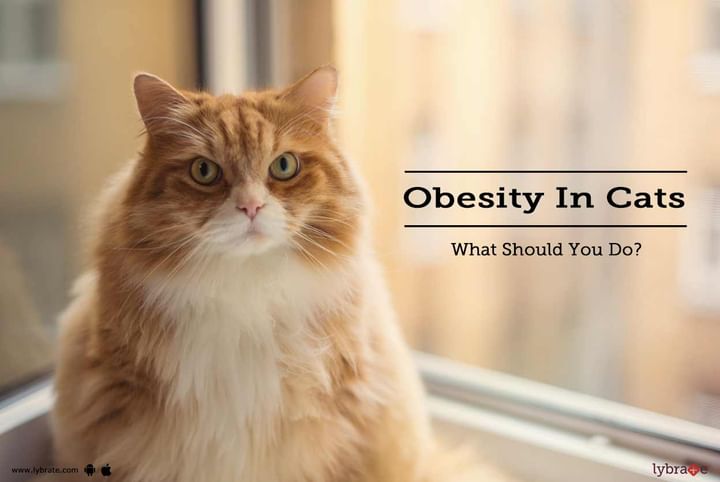Obesity In Cats - What Should You Do?
If your cat is becoming overweight, it is definitely a reason for concern as it could be a sign of different disorders. Overweight and obese cats are growing in number and as a result, the number of cats under normal weight is significantly low. Obesity in cats can be a premonition of high blood sugar, arthritis and hepatic Lipidosis. But if you are willing to put your cat on a diet, then it must be pursued very carefully so that it doesn’t lead to undesirable results.
In a study conducted in 2011 by the Association for Pet Obesity Prevention, it was found that more than 50 percent of cats were overweight and obese. It is important to consider the reason behind sedentary obesity and the most obvious factor that comes to the fore is that any mammal that consumes more calories than it can burn. Any cat that has become overweight or obese should be put under comprehensive health checkup with blood and urine tests and exact weight measurement.
It is also important to check the hormone levels and to ensure that the cat has no metabolic or physical dysfunction. In case the cat is under normal physical function other than being overweight or obese, then a gradual weight loss diet can be implemented to achieve desired results.
Getting started:
The most crucial responsibility of the cat owner is to limit the calories that the feline consume on a regular basis. The general rule is that if the cat is 10 pounds, it must consume around 200 calories in a day according to the guidelines of the Association for Pet Obesity Prevention. Here are some of the tips that you can follow in general to help your cat lose weight.
Measure the daily intake of food and divide the targeted amount of calorie into 4 to 6 small meals. Supply your cat with ample amount of water and consult with your veterinarian to set a weight loss goal. When the cat is becoming too fat, you should avoid giving treats and foods for human beings as that can cause obesity and diarrhea. Also, you should never allow your cat to eat dog food.Cats have their own cat foods commercially available. Every cat must consume those in order to maintain a standard body weight & stunning health. These foods are fortified with essential fibres,proteins or amino acids, micronutrients, vitamins and a very low quantity of carbohydrate. One should not feed any carbohydrate or starch like rice or bread to cats as this is practically not required. A too low amount of carbohydrate in daily diet of a cat is enough. Extra carbohydrate or carbohydrate mainly diet chiefly is responsible for sedentary life and extra pounds in body of the cats which make them prone to many lifestyle diseases like diabetes melitus etc.
Bottom line:
Veterinarians suggest that any new diet is required to be implemented slowly as there is high chance that your cat would stop eating altogether if you give her new foods all of a sudden. And the bottom line is, if you want your cat to control its weight through diet, then you must cut off calories in proportion to the level of physical activity that the cat indulges in. According to the Association for Pet Obesity Prevention, losing 1 pound in a month is a healthy option.
In case you have a concern or query you can always consult an expert & get answers to your questions!



+1.svg)
